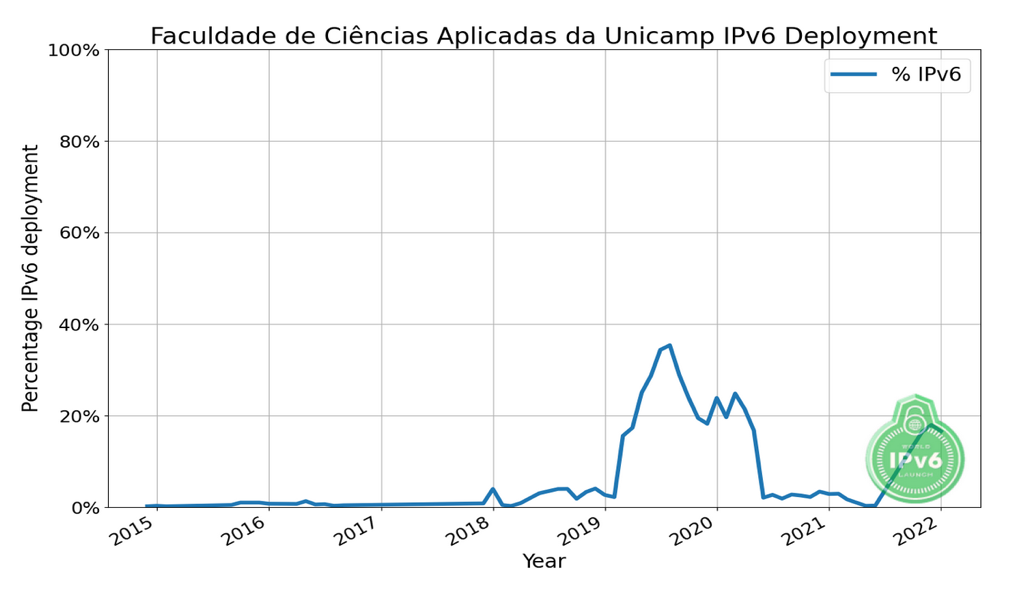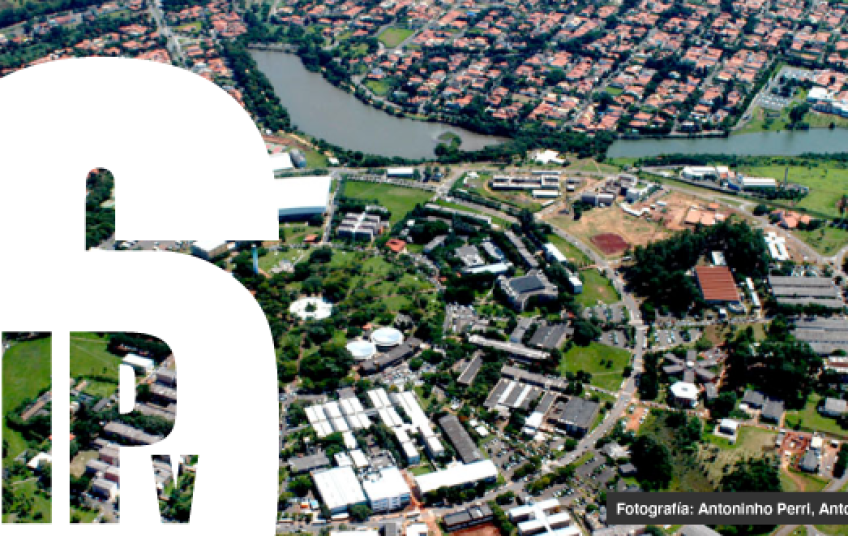Founded in 1966 in the city of Campinas, state of São Paulo, the State University of Campinas (UNICAMP) is one of the main public universities in Latin America. Its fiber optic backbone around campus is used daily by around 60,000 users, including students, faculty, staff and visitors. It also connects more than 20,000 devices on campus daily and around 30,000 mobile devices owned by users and visitors.
In order to connect all these devices to the Internet and support the growth of the campus, considering the shortage of IPv4 addresses - a worldwide concern - it was necessary to make the transition to the IPv6 protocol.
The project and implementation of the IPv6 protocol would not be possible without the commitment and training of information technology professionals and their participation in workshops, courses, events and webinars . The fact of dealing with a "new" protocol was a great challenge that added theoretical and practical knowledge for the growth of the campus, offering an innovative computing environment to support teaching, research and extension activities.
In 2019, the year before the COVID-19 pandemic, the deployment of the IPv6 protocol at the University reached almost 35% (Measurements World IPv6 Launch). In the following years, even with the changes that occurred in Internet access as a result of the pandemic, the campus data network was widely used by external users in order to consume the services offered by the University. This is how we realized that the adoption of the IPv6 protocol was fundamental in this period and it was consolidated. We can also highlight the importance of Internet providers (ISP) and telecommunications operators in delivering the IPv6 protocol to their end users so that students and teachers can have a better experience in accessing the services offered by the University, with higher speed and quality.

We worked a lot on updating and replacing the routers , since the lack of memory prevented the growth of the route table and this generated instability in Internet access. We had to fix and upgrade legacy systems, especially those that have IPv4 addresses in their code (literal IP) and compromise operation in an IPv6-only scenario. In many databases it was necessary to increase the size of the IP field to support IPv6 addresses.
We began to adopt telephony (VoIP) with only IPv6 addresses, which simplified the management of phone lines throughout the campus. Our Wi-Fi network works in dual stack mode and also uses the 464XLAT (Jool) engine to serve legacy devices.
In addition, we managed to raise awareness in the professional ICT community about the need to encourage the adoption of the IPv6 protocol, both in software development and in the implementation of new services and infrastructure.
For the University, much more than a technical question, the adoption of IPv6 has become a question of survival in a connected world —I would even say a strategic question— that seeks to reduce future costs in a scenario of late IPv6 deployment. In this way, the University assumes a leading role in the diversity of services that are offered today with IPv6 support, with the certainty of having achieved the objectives of promoting quality research and teaching, so that the entire university community can have a better experience in Internet access and connectivity to the services offered in a safe and innovative way.





